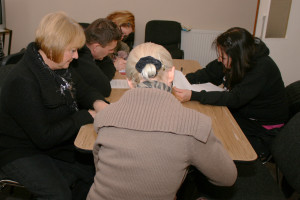I’ve spent most of the week auditing our records and sorting our outcome  statistics. It’s a long-winded business as we are still paper based and dreaming of the day our antiquated IT will be replaced with exciting new systems accessible at the touch of a button.
statistics. It’s a long-winded business as we are still paper based and dreaming of the day our antiquated IT will be replaced with exciting new systems accessible at the touch of a button.
Great Stats for us: Anyway….. I’ve completed the stats and it’s great to see that yet again we’ve made improvements in retention and engagement.
- 92% of clients completed their detox at Western Counselling
- 98% referred for an alcohol detox completed their withdrawal programme
- 85% completed Secondary Care (meaning they actually completed 6 months in treatment)
These figures don’t include those who decide they had sufficient residential treatment and wanted to conclude their recovery programme in the community.
Naïvity of NTA : It’s frustrating to hear that the NTA (National Treatment Agency) considers that residential treatment sector is not achieving positive outcomes compared with structured day care in the community. The NTA make this decision based on the data they receive through National Drug Treatment Monitoring System (NDTMS): data that all services in England are required to complete for each client that enters the treatment system.
What the NTA have naively miscalculated is that NDTMS doesn’t really “fit” the residential sector. The data we are asked to input is flawed – as it doesn’t include some of the untidier aspects of the work we do. For example, how to take into account how physically and mentally unwell clients may be on admission…how we only have a limited period to work with these individuals (compared with the community who may be seeing clients for years)… and the fact that clients are away from their families and friends which can be quite unsettling for some etc. etc. …..
Why do commissioners waste public funds?
When our detox is FREE and successful. We can clearly demonstrate that 92% of clients referred to us for a detox successfully completed their withdrawal programme (a stat many a detox ward would love to produce) and our detox programme is actually free of charge. But commissioners continue to prefer to purchase detox using public money from their local hospital or inpatient detox provider.
How daft is that? We are FREE and obviously successful but public money is being spent delivering services that are already being offered as part of a residential programme at no additional charge.
Maybe we should start charging for this service, would that give it extra kudos? If I’m paying for something these days I want best value and best quality, I think I have evidence that we are providing just that.
from Western Counselling https://www.westerncounselling.com/blog/addiction-issues/rehab-addiction-issues/client-outcomes/
via Alcohol







































